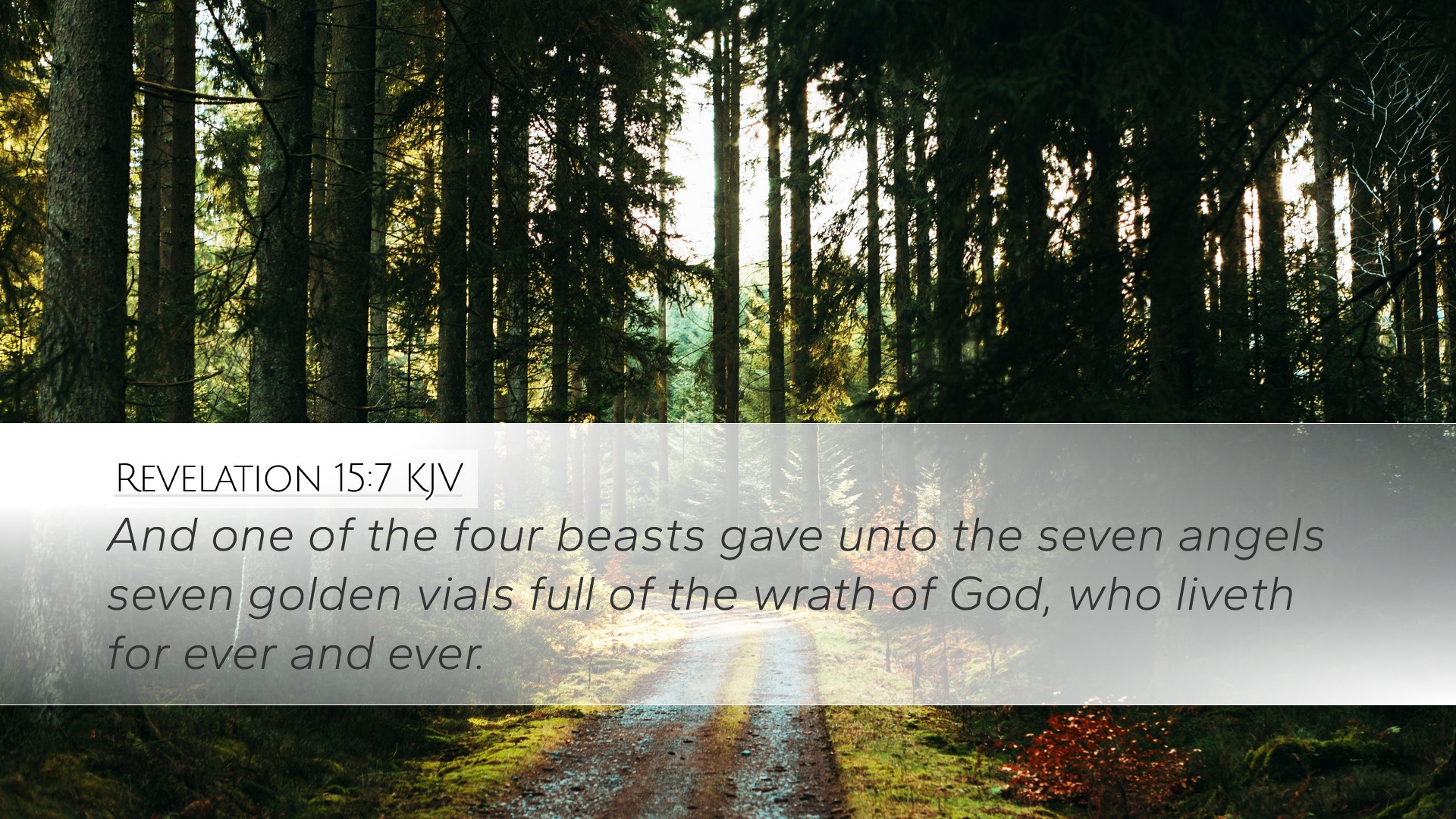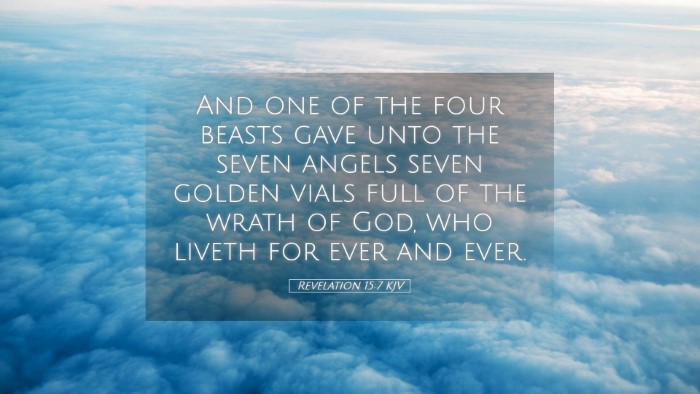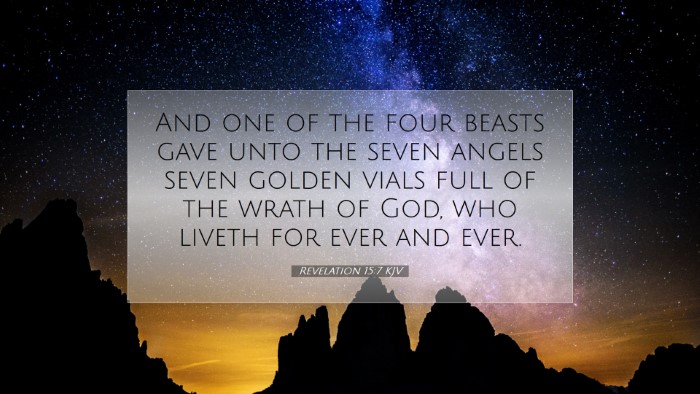Commentary on Revelation 15:7
Verse Reference: Revelation 15:7 – “And one of the four beasts gave unto the seven angels seven golden vials full of the wrath of God, who liveth for ever and ever.”
Introduction
This verse occurs within a pivotal moment in the apocalyptic vision of John, as he uncovers the final outpouring of God's wrath upon a rebellious world. The significance of this passage lies not only in its immediate implications for the events that will unfold but also in the broader theological themes it encapsulates, including divine justice, the holiness of God, and the ultimate triumph of good over evil.
Contextual Analysis
The context of this verse is crucial for understanding its meaning. Prior to this, John describes the scene in heaven where the saints are standing victorious over the beast, holding harps and singing the song of Moses—a celebration of deliverance and judgment. The angelic beings, referred to as "beasts," are majestic creatures that serve to convey the holiness and power of God.
Matthew Henry's Commentary Insights
Matthew Henry emphasizes the role of the four beasts as representatives of God's creation who worship Him and serve His purposes. Their act of presenting the vials to the angels indicates an integral cooperation between the heavenly hosts and God’s judgment. He notes that the "vials" symbolize God's concentrated wrath, contrasting with previous judgments that were more mediated.
Albert Barnes' Commentary Insights
Albert Barnes expands on the imagery of the vials, describing them as instances of the divine judgment that has reached a climax. He points out that the "golden" nature of the vials suggests the purity and sanctity of the judgments, akin to vessels used in holy service. The fullness of the vials evokes the completeness of God's wrath against sin, prepared for the final phase of divine retribution.
Adam Clarke's Commentary Insights
Adam Clarke provides a discourse on the prophetic significance of the vials. He notes that these judgments are to be understood within the context of God's redemptive history, where wrath is not capricious but a response to sustained rebellion against His holiness. Clarke draws attention to the eternal nature of God, indicated by the phrase "who liveth for ever and ever," suggesting that His judgments are rooted in an unchanging and eternal character.
Theological Considerations
The examination of Revelation 15:7 leads to several theological themes worthy of further consideration:
- Divine Wrath: The vials represent the execution of God's wrath, which is not merely punitive but also corrective, aimed at restoring creation to its intended order.
- Holiness of God: The presentation of the vials indicates the absolute holiness and justice of God, who cannot overlook sin. It serves as a reminder that God’s judgments are always just and deserved.
- Hope in Judgment: For believers, these judgments represent hope and the certainty of God's final victory over evil, reinforcing the theme of divine sovereignty throughout Revelation.
Practical Application for Pastors and Theologians
Pastors and theologians can draw various practical insights from this passage:
- Proclamation of Judgment: The church must be unafraid to proclaim God’s righteous judgment alongside His grace, understanding that both are vital to a full understanding of the Gospel.
- Encouraging the Faithful: The imagery provides comfort to believers enduring persecution, assuring them that their suffering is not in vain and that justice will ultimately prevail.
- Holiness and Accountability: There is an inherent call to holiness in the life of believers, aligning with the reality that God holds both the church and the world accountable for their actions.
Conclusion
Revelation 15:7 serves as a crucial verse in the rich tapestry of apocalyptic literature. The combination of imagery, themes of judgment, and the divine character of God extends far beyond the immediate context, reaching into the heart of Christian doctrine and ethics. As scholars and ministers reflect on this passage, they are reminded of the seriousness of sin, the holiness of God, and the hope that is found in Christ amidst impending judgments.


